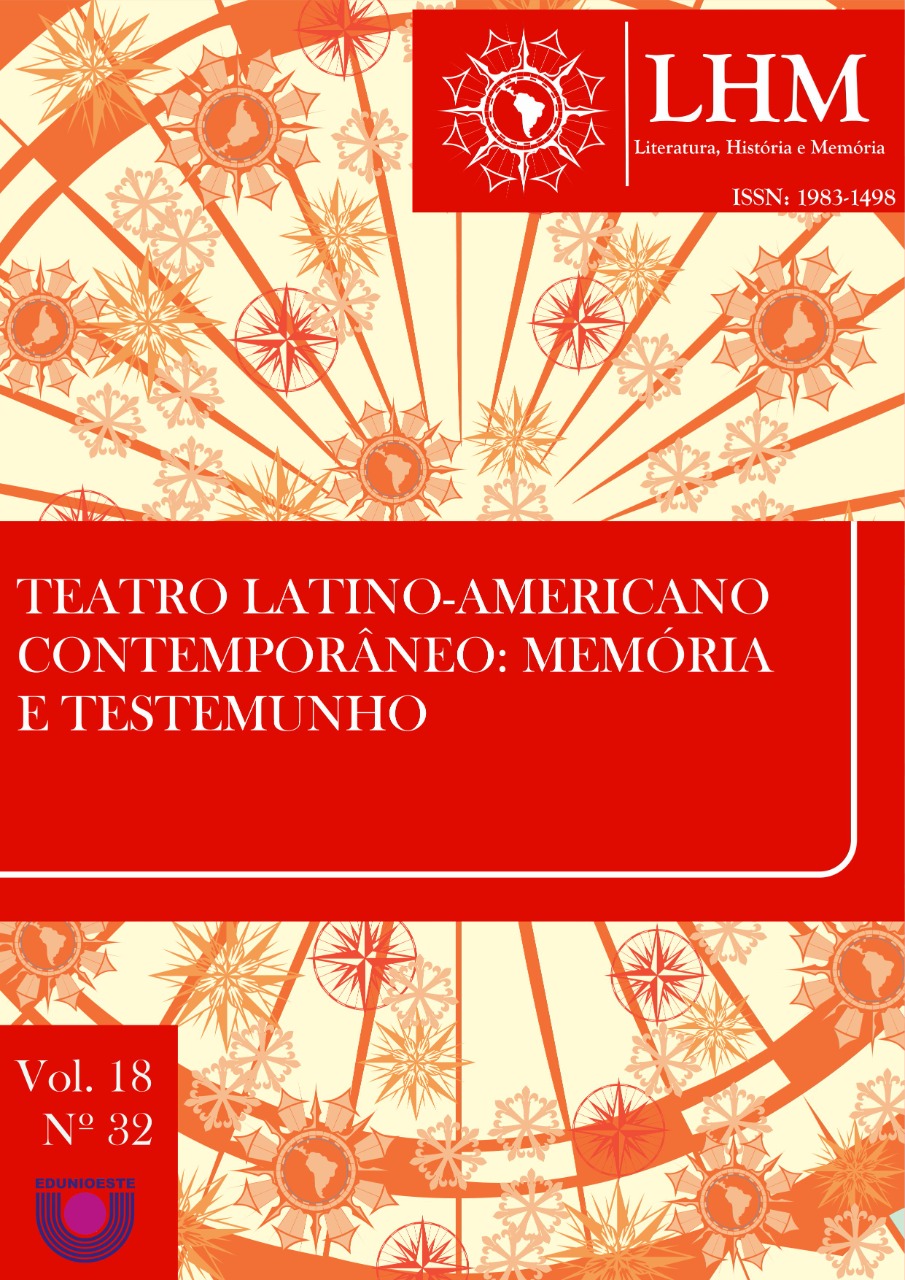Traição, oportunismo e rebeldia
uma leitura histórica de Calabar
DOI:
https://doi.org/10.48075/rlhm.v18i32.29640Resumo
Esse artigo se propõe a fazer uma leitura historiográfica da peça Calabar – O elogio da traição de Chico Buarque e Ruy Guerra, escrita entre 1972-1973, dando especial atenção aos variadores sentidos políticos atribuídos à traição. Através de recursos dramatúrgicos, da didascália, e do retrato dos diversos personagens, a traição de Calabar é colocada em perspectiva no texto da peça, criando circunstâncias que permitem um tratamento ambíguo de suas ações, e que levam, eventualmente, a uma certa inversão de sinal quanto ao seu significado político: de traidor a herói. Ao mesmo tempo, essa inversão altera o significado das ações dos demais personagens, que são pouco a pouco revelados sujeitos conformados e, mesmo, oportunistas. A proposta do artigo é a de pensar como essas escolhas estéticas e políticas foram historicamente calcadas na experiência de viver sob a ditadura militar brasileira, e deliberadamente transformadas em anacronismo, de modo a sugerir analogias tanto sobre os opositores do regime militar de então, quanto aos seus apoiadores mais discretos.
Downloads
Publicado
Como Citar
Edição
Seção
Licença

Este trabalho está licenciado sob uma licença Creative Commons Attribution-NonCommercial-ShareAlike 4.0 International License.
Aviso de Direito Autoral Creative Commons
Política para Periódicos de Acesso Livre
Autores que publicam nesta revista concordam com os seguintes termos:
1. Autores mantém os direitos autorais e concedem à revista o direito de primeira publicação, com o trabalho simultaneamente licenciado sob a Licença Creative Commons Attribution que permite o compartilhamento do trabalho com reconhecimento da autoria e publicação inicial nesta revista.2. Autores têm autorização para assumir contratos adicionais separadamente, para distribuição não-exclusiva da versão do trabalho publicada nesta revista (ex.: publicar em repositório institucional ou como capítulo de livro), com reconhecimento de autoria e publicação inicial nesta revista.
3. Autores têm permissão e são estimulados a publicar e distribuir seu trabalho online (ex.: em repositórios institucionais ou na sua página pessoal) a qualquer ponto antes ou durante o processo editorial, já que isso pode gerar alterações produtivas, bem como aumentar o impacto e a citação do trabalho publicado (Veja O Efeito do Acesso Livre).
Licença Creative Commons
Esta obra está licenciada com uma Licença Creative Commons Atribuição-NãoComercial-CompartilhaIgual 4.0 Internacional, o que permite compartilhar, copiar, distribuir, exibir, reproduzir, a totalidade ou partes desde que não tenha objetivo comercial e sejam citados os autores e a fonte.


